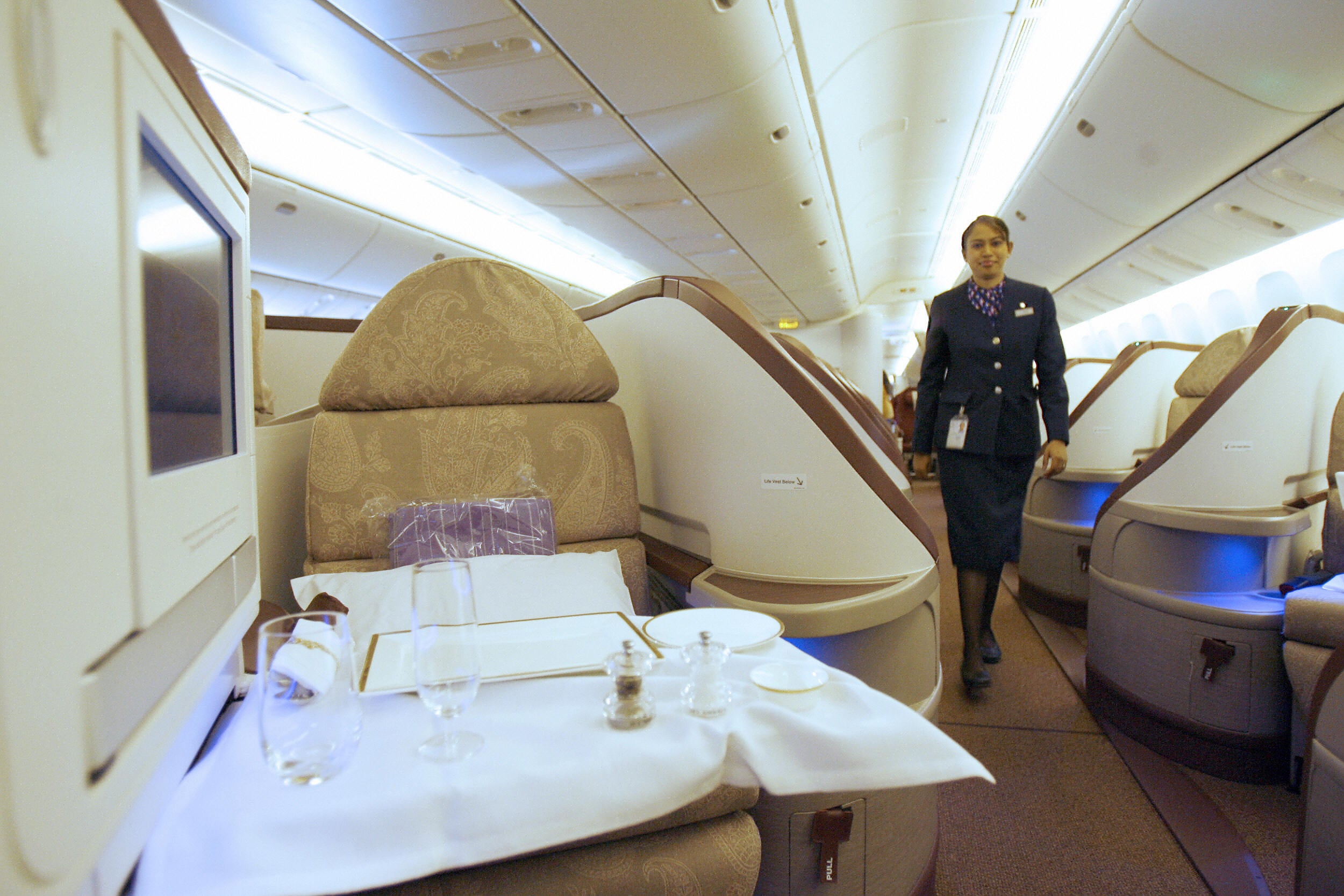The myth of 'travel hackers' who bag luxury trips for pennies
The web is full of stories about 'savvy travellers' who 'hacked' their way to luxury holidays by signing up for dozens of credit cards. Simon Calder says there are better ways to spend time

Your support helps us to tell the story
From reproductive rights to climate change to Big Tech, The Independent is on the ground when the story is developing. Whether it's investigating the financials of Elon Musk's pro-Trump PAC or producing our latest documentary, 'The A Word', which shines a light on the American women fighting for reproductive rights, we know how important it is to parse out the facts from the messaging.
At such a critical moment in US history, we need reporters on the ground. Your donation allows us to keep sending journalists to speak to both sides of the story.
The Independent is trusted by Americans across the entire political spectrum. And unlike many other quality news outlets, we choose not to lock Americans out of our reporting and analysis with paywalls. We believe quality journalism should be available to everyone, paid for by those who can afford it.
Your support makes all the difference.Like you, probably, I invariably try to spend the least I can. But this week I’ve been looking at some of the most expensive flying on the planet. Take a trip in First Class to the far side of the world (frankly, who wouldn’t want to as winter takes hold in the northern hemisphere?). Qantas will take you from London to Auckland for £4,636 in its award-winning First Class cabins, with stopovers in Dubai and Sydney.
Coming back via Los Angeles on Air New Zealand, the fare is a paltry £3,235 – though you’ll be slumming it on a business class lie-flat bed. So for 23,000 miles of luxury travel around the world, you won’t even reach £8,000.
To put that fare in perspective, it represents six months’ work (assuming a 40-hour week) at the National Living Wage. But it is a less than half the £17,200 that a leading travel-and-finance blogger, Daniel Gillaspia, reckoned was the “actual cost” in air fares per person of the trip that he and a partner took around the world from the US.
The couple flew from Los Angeles to Tokyo to Singapore to Johannesburg to Abu Dhabi and finally to New York in a combination of first and business class for a pittance – plus hundreds of thousands of frequent-flyer points. As you can tell from his blog, they stayed in lots of swanky places, such as the InterContinental Tokyo Bay. The stay cost the couple nothing more than IHG points, but the “actual price” was $1,000 for the two nights.
’Tis the season when retailers are traditionally tempted to play the “previously £999” card to emphasise how much you are supposed to be saving on a product that was never actually sold for that price. In fact I did eventually find a room rate at the InterContinental Tokyo Bay, which reaches $1,000 for two nights; it’s rack rate for a top-of-the-range, non-pre-booked deluxe corner room. Now that’s the same room as Mr Gillaspia stayed in but, as he explains, he was upgraded to it. And there’s a wide range of cheaper deals on this room. So “actual price” may be something that hardly anyone ever pays.
A bit of background. Mr Gillaspia vowed to go around the world “spending less than 1 per cent of the amount of money needed to pull off this trip with cash by using miles and points earned from credit cards".
In the US there is an entire industry in applying for several credit cards in order to score frequent-flyer points. As Mr Gillaspia says: “Miles and points don’t just appear out of thin air. It takes a fair amount of work to learn how to earn and redeem them in efficient ways and having access to many credit cards is definitely not something that’s for everyone. However, when you are able to properly sign-up and manage many credit cards, the return in value for your time and effort can be astronomical, as seen by this trip.”
Which begs the question: how do you define “return in value”? Personally, I’d rather stick to economy even on the 14-hour-plus flight from Abu Dhabi to New York than spend days on end managing multiple credit cards.
Indeed, I’m so inattentive about cunning ways to earn Avios (the BA/Iberia currency) that I simply buy the frequent-flyer points. Every year the British Airways Executive Club sends out an email selling Avios, and every year I order the maximum (45,500 for £575). Then, as I wrote here, I redeem them on short-notice European trips or one-way long-haul flights. And the travel writer David Whitley recommends combining simplicity with the odd bit of luxury: “Get one points-earning card, use it to buy what you'd be buying anyway, then enjoy an upgrade every two or three years.”
Although it means missing out on the credit-card shuffle and the inflight canapes, I prefer a simple life of travel.
Click here to view our latest travel offers with Independent Holidays
Join our commenting forum
Join thought-provoking conversations, follow other Independent readers and see their replies
Comments